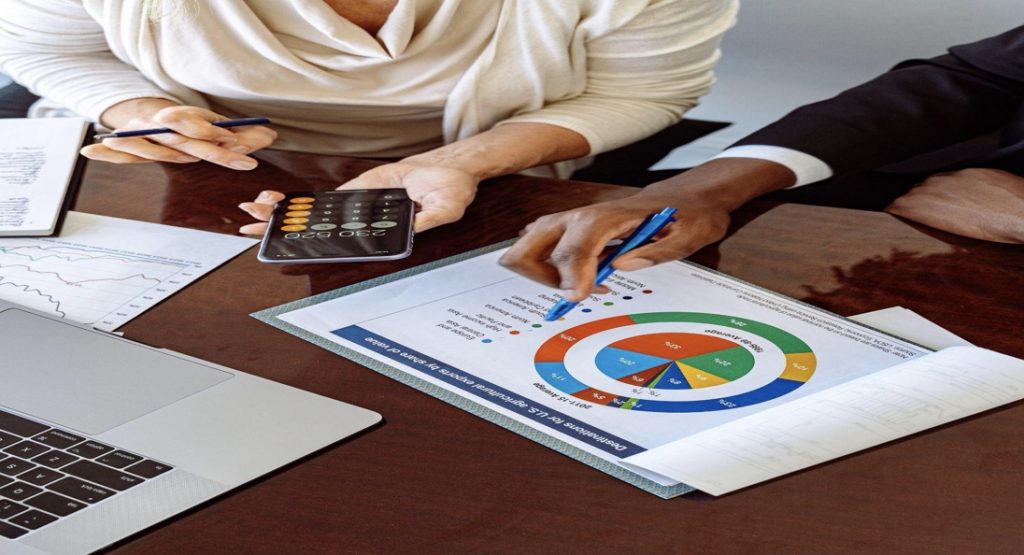An unsecured loan is one that does not require any kind of security. Rather than using a borrower’s property as collateral, lenders grant personal loans depending on their creditworthiness. Personal loans, school loans, or credit cards are examples of unsecured loans.
Content Compass
What is an Unsecured Loan and How Does It Work?
An unsecured loan, which can be compared beste forbrukslån, is completely different than a secured loan, which typically asks for collateral in case the loan note isn’t paid.
Unsecured loans are riskier for creditors since they are not guaranteed by collateral. As a consequence, the interest rates on these loans are usually higher. If a borrower fails on a personal loan, the lender has the right to seize the collateral in order to collect the losses. However, the lender has other options, such as hiring a collection agency or bringing the debtor to court to recover the loan. The borrower’s earnings may be garnished if the court determines in favor of the lender.
A lien can also be put on the borrower’s house (if they own one), and the borrower might be required to pay the debt in some other way. Borrowers may suffer disadvantages as a result of defaults, including poorer credit scores. Unsecured loans provide you the freedom to borrow money for nearly any reason. You can use the money to establish a business, pay off debt, or purchase a high-priced toy. Before you take out a loan, fully understand how all these loans work and what other options you might have.
The Fundamentals of Unsecured Private Loans
An unsecured loan is one that does not require any assets or security to secure or ensure it. A secured loan, such as a second mortgage, is one that is backed by real estate. If you don’t pay back the loan, your creditor has the authority to sell your house and collect the debt from the proceeds. Nothing particular has been promised as security for unsecured loans. As a result, they’re a bit less dangerous for you, the debtor, because the implications of not repaying aren’t as severe.
Credit Is A Huge Factor
Unsecured personal loans, on the other hand, expose lenders to more risk. They don’t have any assets to sell if you don’t pay back the loan, but they do have other alternatives if they wish to pursue repayment, such as filing a lawsuit against you and seeking to garnish your salary. Because unsecured loans carry a larger risk, lenders often demand a higher rate of interest than secured loans.
One of the most crucial elements in deciding whether or not you’ll be approved for an unsecured loan is your credit score. You’ll pay cheaper loan rates and have more options if you have good credit. You won’t get many options if you have low credit, and you could have to have a co-signer to get accepted for a loan. It’s a good idea to understand more about credit ratings before applying for a loan.
Types of Loans
Lenders provide a variety of unsecured lines of credit, each with its own set of benefits and drawbacks. Look for a loan that fulfills your requirements while keeping your expenditures low.
The most basic sort of unsecured loan is the signature loan. The loan is backed just by your signature, or your promissory note, as the term implies. These loans are available through banks and credit unions, so you can spend the funds on whatever you like. Just make sure you’re informed of any potential issues.

Unsecured Loans Come in a Variety of Forms
A revolving loan is one with a credit limit that may be used, paid back, and used again. Credit cards and individual lines of credit are instances revolving around unsecured loans.
A term loan, as it is defined here, is a loan that the borrower pays back in equal monthly payments until it is paid off. These loans are frequently associated with secured loans, however, they can also be unsecured term loans. Unsecured term loans include debt consolidation loans to pay off credit card bills and signature loans from banks.
The unsecured lending industry has grown in recent years, fueled in part by fintech (short for financial technology firms). Peer-to-peer (P2P) lending has exploded in popularity over the last decade, thanks to online and mobile lenders. If you’re considering taking out an unsecured loan to cover personal costs, a personal loan calculator will help you figure out your monthly payment.
Payday Loan vs. Unsecured Loan
Alternative lenders such as payday loan companies and merchant cash advance organizations do not provide secured loans in the classic sense. In the same manner that mortgages and vehicle loans are secured by tangible security, their loans are not. These lenders, on the other hand, take additional steps to ensure repayment.
To repay the loan, payday lenders, for instance, demand consumers to write a postdated check or consent to an automated withdrawal from their bank accounts. Many online merchant payday loan lenders need a percentage of internet sales to be paid through an online payment provider like PayPal. Even though they are somewhat secured, these loans are deemed unsecured.
Payday loans may be called predatory loans because of their high-interest rates. Payday loans are potentially exploitative since they include concealed clauses that charge borrowers added fees. Many places have even outlawed them. This is because the loans come at such a high-interest rate that must be paid so quickly, that the borrower has no choice but to immediately borrow the money back, creating an unbreakable cycle of debt.

Particular Points to Consider
While lenders have the discretion to approve or deny a line of credit depending on your creditworthiness, regulations safeguard borrowers from unfair lending practices. You can use one of the many apps to compare lenders based on your credit score and determine which lender would be best for you to consider asking for a personal loan.
The retirement advisors software apps match you with trustworthy financial advisers in your neighborhood. They have thoroughly verified each adviser and require them to behave in your best interests. Get started today if you’re ready to be paired with local experts who can help you reach your financial objectives.
Management of credit
Ordinary deferred revenue (normal receivables for which repayment is made as per the contract), controlled receivables (receivables for which no payment is made by the repayment date), and unpayable receivables (receivables for which no payment is made by the repayment date) are the three types of loan receivables that consumer finance companies manage.
Receivables can be collected in one of four ways: over the phone, in written, door-to-door, or through legal proceedings. It is up to the legislation in your particular area as to how loans can be collected, however, if a creditor violates those collection laws there can be severe penalties involved.
When should you take out a personal loan instead? Personal loans are frequently a better choice than credit cards. You will often pay a lesser interest rate on a personal loan. A personal loan can also be paid back in equal installments over time. With a credit line, you pay a large amount upfront, then the debt is gradually reduced each month until it is paid off. For longer-term finance that you can’t pay off right away, a personal loan is preferable to a credit card.
A “secured” loan should only be taken out in a few instances. When you get a loan, you have to put up other assets as collateral. If you default on your loan, your lender has the right to confiscate the property. Typically, automotive loans are secured by the vehicle itself.
In most cases, early repayment delays are caused by forgetting the payment date, and they seldom result in major delays. The bulk of these situations may be resolved quickly by phoning the customer or delivering a written message.